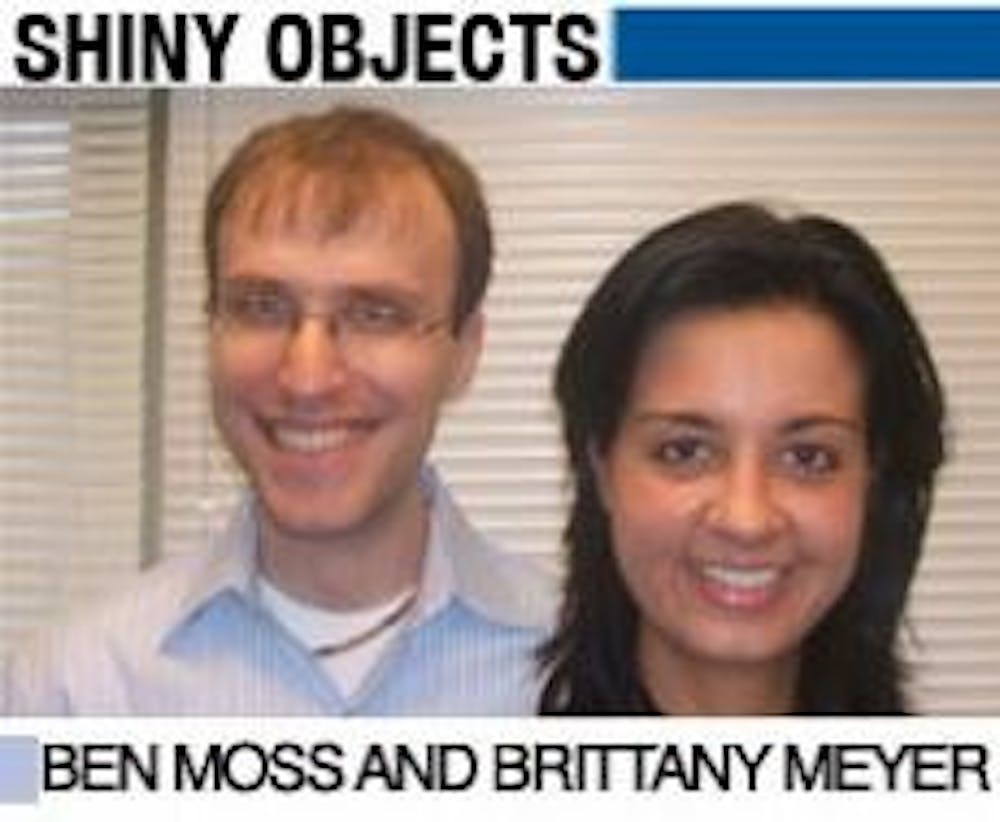Stop. What are you doing?
Reading the paper. But what else? Facebook? Homework? Music? On the phone with a friend? If all you're doing right now is absorbing this article, you aren't being productive.
Or at least it's tempting to think that way. Every student knows there aren't enough hours in the day to get everything done. But studies show humans aren't as good at multitasking as we believe.
And believe we do. An unofficial study of some fellow law students revealed that most of them multitask during class. Scandalous! What all-important activities, we hear you cry, could possibly compete for attention with a professor's words of wisdom?
Answering e-mails. Reading for the next class. Reading for this class. Playing solitaire. Shopping online. The list goes on. And while some people claim their notes don't suffer, just one glance at the jumbled, incomplete mess they walk out of class with tells a different story. In large part, we delude ourselves into believing we can do two things at once. Sadly, we can't overcome the brain's limitations.
It all has to do with the prefrontal cortex (Ah, of course!). Whether taking notes or talking on the phone, this part of the brain runs the show when it comes to conscious activities. But it isn't very keen at letting you do two things at once.
Rather than processing both tasks simultaneously, the brain quickly switches back and forth between them. The result? You get slower and you do worse. The only truly efficient multitasking occurs when one of the tasks is automatic. This explains why you can walk and chew gum at the same time - after years of practice, walking takes little to no conscious thought.
Speaking of people infamous for acting without the aid of conscious thought, lawmakers are starting to pass laws against multitasking. Well-known in D.C. is the law against using a cell phone while driving. You only need to be pulled over once to learn that this infraction carries a hefty $100 fine. Ouch! And states like Virginia and Maryland are following suit. Although getting a ticket is annoying and expensive, no-cell laws should stay on the books. As an Australian study found, people who use a cell phone while driving are no less than four times more likely to crash and injure themselves. This is serious business.
School officials are also taking charge against multitasking - at least where they can. Last spring, the University of Chicago Law School banned Internet access in most of its classrooms, citing the distraction. Harvard and Yale have also considered bans. Closer to home, a few AU professors have suggested a ban on laptops. The rationale seems to be sound: as a University of London study found that "office workers who are distracted by e-mail ... suffer a fall in IQ more than twice that found in marijuana smokers." What a downer.
We hasten to add that while taking computers out of the classroom could be a step in the right direction, it's definitely a step too far. Computers serve a purpose far beyond that of surfing the 'net.' Anyone with bad handwriting knows that a computer can be a lifesaver. If the Internet is the problem, don't take away the computers; turn off the Wi-Fi.
As things stand now, the solution is up to you. Turning off your wireless card in class and while studying should do wonders for your attention and possibly your grades. And yes, we've tried - and failed - to find the willpower as well. But succeed and you know who will thank you?
Your prefrontal cortex.
Ben Moss and Brittany Meyer are students in the Washington College of Law and columnists for The Eagle. You can reach them at edpage@theeagleonline.com.




